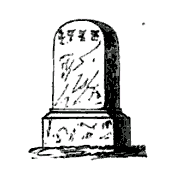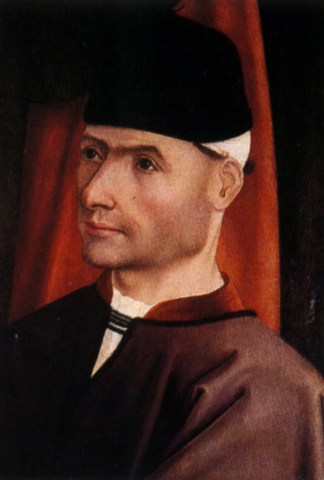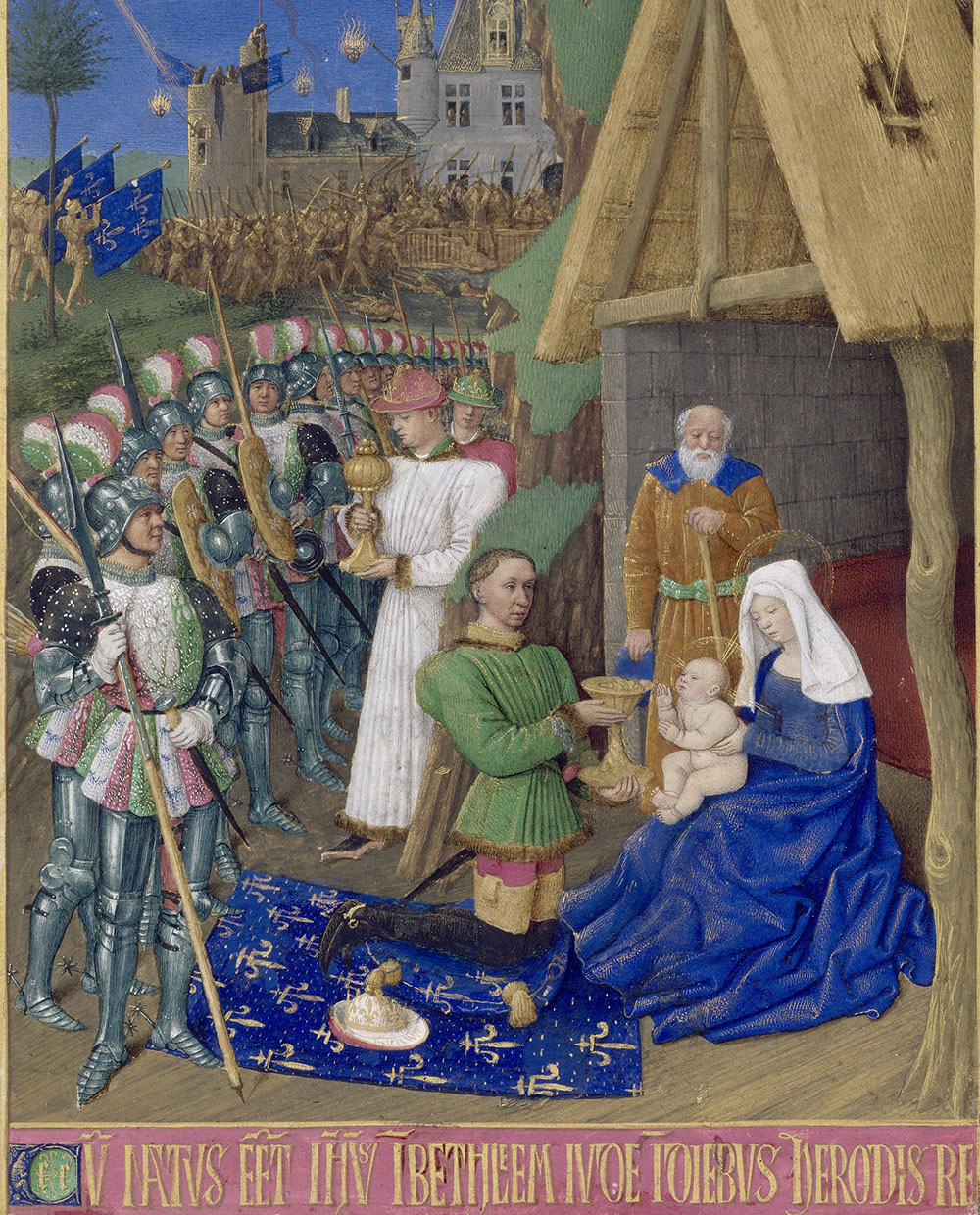|
Philippe De Culant
Philippe de Culant (1413 – December 1454) was a French nobleman and soldier of the Hundred Years' War. He was a nephew of Louis de Culant, Admiral of France, and the brother of Charles de Culant, and related to Jean de Brosse by marriage. The ''de Culant'' family took their name from the village of Culant (now Culan) in the modern department of Cher. Philippe was Lord of nearby Jaloignes and later seneschal of the Limousin. He participated the sieges of Meaux (1439) and Pontoise (1441), and was made a Marshal of France in 1441 by King Charles VII of France for his services. He accompanied the heir to the throne, the future King Louis XI of France, on campaign in Germany in 1444 and served in many of the successful sieges which brought the Hundred Years' War to an end, including those of Taillebourg, Le Mans, Château Gaillard, Rouen, Bayeux, Caen, Cherbourg, and Bergerac. He entered Bordeaux alongside Jean de Dunois Jean d'Orléans, Count of Dunois (2 ... [...More Info...] [...Related Items...] OR: [Wikipedia] [Google] [Baidu] |
France
France (), officially the French Republic ( ), is a country primarily located in Western Europe. It also comprises of Overseas France, overseas regions and territories in the Americas and the Atlantic Ocean, Atlantic, Pacific Ocean, Pacific and Indian Oceans. Its Metropolitan France, metropolitan area extends from the Rhine to the Atlantic Ocean and from the Mediterranean Sea to the English Channel and the North Sea; overseas territories include French Guiana in South America, Saint Pierre and Miquelon in the North Atlantic, the French West Indies, and many islands in Oceania and the Indian Ocean. Due to its several coastal territories, France has the largest exclusive economic zone in the world. France borders Belgium, Luxembourg, Germany, Switzerland, Monaco, Italy, Andorra, and Spain in continental Europe, as well as the Kingdom of the Netherlands, Netherlands, Suriname, and Brazil in the Americas via its overseas territories in French Guiana and Saint Martin (island), ... [...More Info...] [...Related Items...] OR: [Wikipedia] [Google] [Baidu] |
Culan
Culan () is a commune in the Cher ''département'' in the Centre-Val de Loire region of France. It is best known for its 12th-15th century medieval castle, the Château de Culan, one of the oldest castles still occupied in the world. The castle has beautiful medieval gardens and it is open to visitors every day from Easter until November. Geography The commune is a farming area comprising the village and a few hamlets situated by the banks of the river Arnon, in the south of the ''département'' some south of Bourges and at the junction of the D997 with the D943, D4 and D65 roads. Population Sights * The church of St. Vincent, dating from the seventeenth century * The castle * A watermill * A nineteenth-century viaduct See also * Château de Culan *Communes of the Cher department The following is a list of the 287 communes of the Cher department of France. The communes cooperate in the following intercommunalities (as of 2020): [...More Info...] [...Related Items...] OR: [Wikipedia] [Google] [Baidu] |
Marshals Of France
Marshal of France (french: Maréchal de France, plural ') is a French military distinction, rather than a military rank, that is awarded to generals for exceptional achievements. The title has been awarded since 1185, though briefly abolished (1793–1804) and for a period dormant (1870–1916). It was one of the Great Officers of the Crown of France during the and Bourbon Restoration, and one of the Grand Dignitaries of the Empire during the First French Empire (when the title was Marshal of the Empire, not Marshal of France). A Marshal of France displays seven stars on each shoulder strap. A marshal also receives a baton: a blue cylinder with stars, formerly fleurs-de-lis during the monarchy and eagles during the First French Empire. The baton bears the Latin inscription of ', which means "terror in war, ornament in peace". Between the end of the 16th century and the middle of the 19th century, six Marshals of France were given the even more exalted rank of Marshal General ... [...More Info...] [...Related Items...] OR: [Wikipedia] [Google] [Baidu] |
1454 Deaths
Year 1454 ( MCDLIV) was a common year starting on Tuesday (link will display the full calendar) of the Julian calendar. Events January–December * February 4 – Thirteen Years' War: The Secret Council of the Prussian Confederation sends a formal act of disobedience to the Grand Master, and the citizens of Toruń rebel against the Teutonic Knights, beginning the conflict. * March 6 – Casimir IV of Poland renounces allegiance to the Teutonic Knights. * March 27 – Richard Plantagenet, Duke of York, becomes Protector for King Henry VI of England, who is in a catatonic state. * April 9 – Treaty of Lodi: Francesco Sforza forms a triple alliance between the Duchy of Milan, the Republic of Florence and Kingdom of Naples. * August – In Moldavia, Petru Aron retakes the throne from Alexăndrel. * September 18 – Thirteen Years' War – Battle of Chojnice: The Polish army is defeated by a smaller but more professional Teutonic army. * Dece ... [...More Info...] [...Related Items...] OR: [Wikipedia] [Google] [Baidu] |
1413 Births
Year 1413 ( MCDXIII) was a common year starting on Sunday (link will display the full calendar) of the Julian calendar. Events January–December * March 21 – Henry V becomes King of England following the death of his father Henry IV. * July 5 – Battle of Çamurlu: Mehmed I defeats his brother Musa, ending the Ottoman Interregnum. * August 28 – The University of St Andrews in Scotland is chartered by papal bull. * October 2 – The Kingdom of Poland and Grand Duchy of Lithuania sign the ''Union of Horodło''. Date unknown * Samogitia becomes the last region in Europe to be Christianized. * The ''Annals of the Joseon Dynasty'' begin in Korea. Births * February 24 – Louis, Duke of Savoy (d. 1465) * September 8 – Catherine of Bologna, Italian cloistered nun (d. 1463) * November 19 – Frederick II, Elector of Brandenburg (d. 1471) * ''date unknown'' – Joanot Martorell, Spanish writer (d. 1468) Deaths * January 25 &ndas ... [...More Info...] [...Related Items...] OR: [Wikipedia] [Google] [Baidu] |
Jean De Dunois
Jean d'Orléans, Count of Dunois (23 November 1402 – 24 November 1468), known as the "Bastard of Orléans" (french: bâtard d'Orléans) or simply Jean de Dunois, was a French military leader during the Hundred Years' War who participated in military campaigns with Joan of Arc. His nickname, the "Bastard of Orléans", was a mark of his high status, since it acknowledged him as a first cousin to the king and acting head of a cadet branch of the royal family during his half-brother's captivity. In 1439 he received the county of Dunois from his half-brother Charles, Duke of Orléans, and later king Charles VII made him count of Longueville. Life Jean was the illegitimate son of Louis I, Duke of Orléans – son of King Charles V of France – and his mistress Mariette d'Enghien. In 1407, Jean's father, Louis I, Duke of Orléans was assassinated. Eight years later, his half-brother, Charles, Duke of Orléans was captured at the Battle of Agincourt and remained a prisoner of t ... [...More Info...] [...Related Items...] OR: [Wikipedia] [Google] [Baidu] |
Bordeaux
Bordeaux ( , ; Gascon oc, Bordèu ; eu, Bordele; it, Bordò; es, Burdeos) is a port city on the river Garonne in the Gironde department, Southwestern France. It is the capital of the Nouvelle-Aquitaine region, as well as the prefecture of the Gironde department. Its inhabitants are called ''"Bordelais"'' (masculine) or ''"Bordelaises"'' (feminine). The term "Bordelais" may also refer to the city and its surrounding region. The city of Bordeaux proper had a population of 260,958 in 2019 within its small municipal territory of , With its 27 suburban municipalities it forms the Bordeaux Metropolis, in charge of metropolitan issues. With a population of 814,049 at the Jan. 2019 census. it is the fifth most populated in France, after Paris, Lyon, Marseille and Lille and ahead of Toulouse. Together with its suburbs and exurbs, except satellite cities of Arcachon and Libourne, the Bordeaux metropolitan area had a population of 1,363,711 that same year (Jan. 2019 census), ma ... [...More Info...] [...Related Items...] OR: [Wikipedia] [Google] [Baidu] |
Louis XI Of France
Louis XI (3 July 1423 – 30 August 1483), called "Louis the Prudent" (french: le Prudent), was King of France from 1461 to 1483. He succeeded his father, Charles VII. Louis entered into open rebellion against his father in a short-lived revolt known as the Praguerie in 1440. The king forgave his rebellious vassals, including Louis, to whom he entrusted the management of the Dauphiné, then a province in southeastern France. Louis's ceaseless intrigues, however, led his father to banish him from court. From the Dauphiné, Louis led his own political establishment and married Charlotte of Savoy, daughter of Louis, Duke of Savoy, against the will of his father. Charles VII sent an army to compel his son to his will, but Louis fled to Burgundy, where he was hosted by Philip the Good, the Duke of Burgundy, Charles' greatest enemy. When Charles VII died in 1461, Louis left the Burgundian court to take possession of his kingdom. His taste for intrigue and his intense diplomatic ac ... [...More Info...] [...Related Items...] OR: [Wikipedia] [Google] [Baidu] |
Charles VII Of France
Charles VII (22 February 1403 – 22 July 1461), called the Victorious (french: le Victorieux) or the Well-Served (), was King of France from 1422 to his death in 1461. In the midst of the Hundred Years' War, Charles VII inherited the throne of France under desperate circumstances. Forces of the Kingdom of England and the duke of Burgundy occupied Guyenne and northern France, including Paris, the most populous city, and Reims, the city in which French kings were traditionally crowned. In addition, his father, Charles VI, had disinherited him in 1420 and recognized Henry V of England and his heirs as the legitimate successors to the French crown. At the same time, a civil war raged in France between the Armagnacs (supporters of the House of Valois) and the Burgundian party (supporters of the House of Valois-Burgundy, which was allied to the English). With his court removed to Bourges, south of the Loire River, Charles was disparagingly called the "King of Bourges", because the ... [...More Info...] [...Related Items...] OR: [Wikipedia] [Google] [Baidu] |
Pontoise
Pontoise () is a commune in the northwestern suburbs of Paris, France. It is located from the centre of Paris, in the " new town" of Cergy-Pontoise. Administration Pontoise is the official ''préfecture'' (capital) of the Val-d'Oise ''département'', although in reality the ''préfecture'' building and administration, as well as the department council (''conseil général''), are located in the neighboring commune of Cergy, which is regarded as the ''de facto'' capital of Val-d'Oise. Pontoise is also the seat of the Arrondissement of Pontoise. The ''sous-préfecture'' building and administration, unlike the ''préfecture'', are located inside the commune of Pontoise. Sister cities The city of Pontoise has three sister city relationships with: * Böblingen, Germany since 1956 * Sevenoaks, United Kingdom since 1964 * Geleen, Netherlands since 1962 Security Known for being a violent city in the late 20th century, with a criminal rate of 137.62 incidents per 1000 inhabit ... [...More Info...] [...Related Items...] OR: [Wikipedia] [Google] [Baidu] |
Meaux
Meaux () is a commune on the river Marne in the Seine-et-Marne department in the Île-de-France region in the metropolitan area of Paris, France. It is east-northeast of the centre of Paris. Meaux is, with Provins, Torcy and Fontainebleau, one of the four subprefectures (''sous-préfectures'') of the department of Seine-et-Marne, Melun being the prefecture. In France a subprefecture is the chef-lieu (the seat or administrative capital) of an ''arrondissement'': Meaux is the subprefecture of the arrondissement of Meaux. It is also the chef-lieu of a smaller administrative division: the canton of Meaux. Finally, since its creation in 2003, Meaux has been the centre and the main town of an agglomeration community, the Communauté d'agglomération du Pays de Meaux. Demographics With a population of 55,416 inhabitants in 2018, Meaux is the most populous city in the Seine-et-Marne department, just before Chelles (55,148 inhabitants in 2018). [...More Info...] [...Related Items...] OR: [Wikipedia] [Google] [Baidu] |
Limousin (province)
Limousin ( oc, Lemosin) is a former province of the Kingdom of France. It existed from 1589 until 1790, when the National Constituent Assembly adopted a more uniform division into departments (''départements'') and districts (''arrondissements''). It is located in the foothills of the western edge of the Massif Central and surrounds the city of Limoges ( oc, Limòtges). The territory of the former province of Limousin corresponds to an area smaller than the administrative region, comprising the current department of Corrèze, the southern half of Haute-Vienne (including Limoges, its historic capital), and a small part of the Dordogne. History The history of Limousin reaches back to Celtic and Roman times (50 BC to 550 AD). Its name is derived from the name of a Gallic tribe, the Lemovices, whose main sanctuary was recently found in Tintignac and became a major research site of the Celtic world. During the 10th century, Limousin was divided into many ''seigneuries''. The mos ... [...More Info...] [...Related Items...] OR: [Wikipedia] [Google] [Baidu] |




